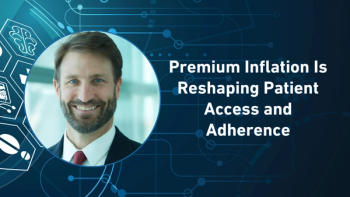
- Pharmaceutical Commerce - May/June 2017
Emphasize patient interaction in patient support programs
Hubs and other patient services need to stress the personal
Patient services hubs are more and more common. Although the recent growth in patient services hubs is due to the growth in specialty products, there is room for growth across every therapeutic area. For example, I worked at Merck-Medco in the mid-1990's developing and implementing disease management programs to help manage high cholesterol. Medco also had active programs in congestive heart failure, diabetes and smoking cessation. The goals of these programs were much like the hubs of today—appropriately increase drug access, improve adherence rates and improve healthful behaviors. These programs utilized all the services hubs have today—healthcare staff, algorithms to identify and escalate patients when needed, and a call center.
However, we went further than the typical hub of today—we interacted with patients routinely with personalized efforts to support the needs of the patient. This last piece is what is missing in the typical hub today. This is where I see a missed opportunity. Access—this is the main goal of today's hubs. Recently, this journal provided a
- A greater emphasis on assisting prescribers in helping their patients, especially regarding prior authorization (PA) paperwork
- The rush to develop comprehensive data platforms
- The drive to one-stop shops offering growing number of services
- The effort to broaden hub services to lower-cost or even retail pharmacy drugs, a so-called "specialty lite" effort
There is very little evidence of industry efforts to go after the opportunity to create two-way communications with patients or towards behavior changing initiatives, although there is a lot of discussion about doing exactly this.
After having worked with hubs, I see this focus on only access as a missed opportunity to build strong relationships with patients and learn more about their lives. If these "beyond the pill" services were implemented, it would mean opportunity to solve other looming issues in pharma, such as:
- With the advent of performance-based contracting, we have learned that it is tremendously hard to define milestones for the performance. The hub is in the ideal place to collect patient-reported outcomes (PROs). The PROs would serve as real-world milestones that could contribute to defining the success of these contracts, both in costs and health outcomes.
- Improving adherence rates can easily take place within the hub with behavior change initiatives. While collecting the PROs, we would learn the behavior patterns in the patient's lives; we could easily address the barriers and motivate for positive behaviors.
- In clinical trials, we have increasing pressure on recruiting diverse populations. Through the hub, there could be strong recruitment and retention efforts, Also, with the clinical trial model evolving to include remote monitoring, the hub is the ideal place for that monitoring.
The hub concept is a growing trend;
- Realized the need for a change in business model. The route to growth via R&D is slowing. This company realized there are other opportunities for growth if the company refocused its efforts on patients.
- The pharmaceutical company started making steps towards providing services, beyond access, to support patients. The efforts they have decided to pursue are the same as I have described above.
The goal of the article is to describe a process to help a company identify opportunities and get internal buy-in for the opportunities. It is interesting that, as the leadership went through the exercises, they realized they need to refocus the business on enhanced patient services—services beyond access to drugs.
Access has been low-hanging fruit but it is no longer enough. We need to take this to the next level and put in place services that can not only support the traditional acquisition lever but can also support retention, an aspiration in pharma.
Dyan Bryson, the owner of Inspired Health Strategies, LLC (
Articles in this issue
over 8 years ago
The sales rep study I’d like to seeover 8 years ago
Survey tracks evolving health economics function in pharmaover 8 years ago
Is your corporate board equipped to monitor incentive programs?over 8 years ago
2017 Product Security Reportover 8 years ago
Compliance Package of the Year goes to Merck’s Zepatierover 8 years ago
How cloud-based IT systems address FDA validation requirementsover 8 years ago
Future look: The Impact of Biosimilars on Oncologyover 8 years ago
New science energizes the cancer marketover 8 years ago
A Conversation with John Chiminski, CatalentNewsletter
Stay ahead in the life sciences industry with Pharmaceutical Commerce, the latest news, trends, and strategies in drug distribution, commercialization, and market access.




